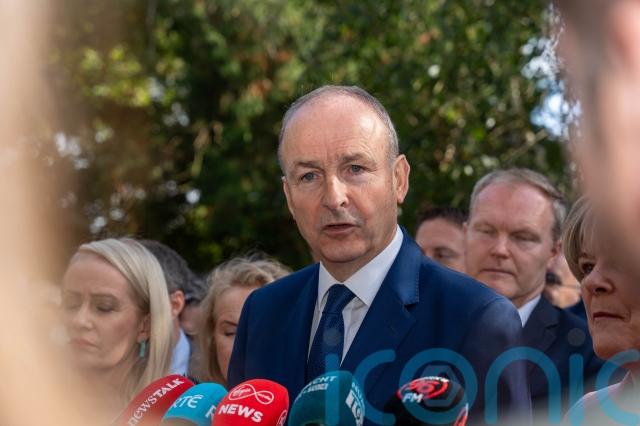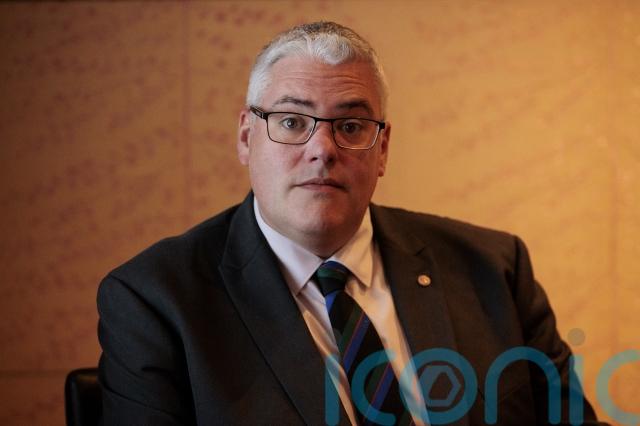
The UK and Irish governments are set to publish a long-awaited framework to deal with the legacy of the Northern Ireland Troubles on Friday.
Irish premier Micheal Martin said a “substantive package” had been agreed which would include the restoration of civil cases.
The Labour Government came to power with a pledge to replace and repeal the controversial 2023 Legacy Act introduced by the Conservatives.
The Act had been opposed by victims’ groups and political parties in Northern Ireland, and it led the Dublin government to launch an interstate legal case against the UK.
The Act created a new legacy body, the Independent Commission for Reconciliation and Information Recovery (ICRIR), to take over the investigation of all outstanding Troubles cases.
The Act also contained an offer of conditional immunity to some suspects, but this was disapplied after legal action by bereaved families.
The new framework will be unveiled on Friday by Northern Ireland Secretary Hilary Benn and Ireland’s deputy premier Simon Harris.
It is understood the new framework will see the ICRIR substantially overhauled and become the Legacy Commission which will look at Troubles cases.
A separate body will deal with information recovery.
The proposed new arrangements will require legislation in both Westminster and Dublin.
Armed forces minister Al Carns recently told the House of Commons that the Government would ensure that repealing the Legacy Act would not result in veterans being punished.
He said: “We will ensure that protections are in place to allow us to get to the truth and to ensure that no-one can rewrite history or make veterans suffer any more.”

Speaking on Thursday, Taoiseach Mr Martin said there had not been “full agreement on all issues”.
He said: “One never gets full agreement on all issues but suffice to say that the core issues around immunity, the restoration of civil cases that has happened, but also our concerns in terms of the limits that were there in terms of the original ICRIR review mechanism, that there’s now a much stronger investigative dimension to the framework.
“The Republic will be making a strong contribution financially, and indeed in terms of co-operation and creating capacity within An Garda Siochana and within Department of Justice to respond robustly, comprehensively, to any issues that might arise in the context of legacy issues.”
Mr Martin added: “I’ve been involved in Northern Ireland all of my political life, this issue has not been resolved.
“When I say resolved, we don’t have a credible pathway to help families who are grieving – we’re now into third generations, nephews, nieces and grandsons and grand-daughters coming to us looking for closure on many, many cases as a result of the Troubles.
“That’s why I put a lot of work into this with the Tanaiste and we both are of a view that this is an opportunity, with this British government in particular, to bring this to a conclusion.”
Sinn Fein leader Mary Lou McDonald said she hoped the new framework would be human-rights compliant.
She said: “It is important that we move away entirely from the failed legacy Act, which bear in mind Keir Starmer had promised to ditch and to scrap entirely, so we await with others to see what exactly this looks like.
“It is important to reflect that the ultimate judgment on all of the proposed arrangements will be made by victims, survivors and their families.”

DUP leader Gavin Robinson accused the Labour Government of giving away “dual control” of legacy to Dublin.
He said: “In allowing dual control of our legacy policy to the Irish Government, inviting them in to have dual control of our legacy policy is egregious.
“It takes no account whatsoever of their role during the Troubles, of how they supported and protected terrorists who fled to their jurisdiction, it takes no account of the fact they frustrated extradition and criminal justice, and the opportunity of answers for victims in Northern Ireland.
“It takes no account of, to this day, their failure to engage properly and open up their books to the Omagh Inquiry in a way which would answer what they could have done to answer questions and potentially avert the atrocity of Omagh.
“It does nothing to remove the outrageous interstate case they have against the United Kingdom.”
He added: “The Irish Government do not have an equal say in how we, as a sovereign nation, deal with the legacy of our past – they do not.
“They should be consulted where appropriate and that is what the Fresh Start agreement says, but this goes far beyond.”
Subscribe or register today to discover more from DonegalLive.ie
Buy the e-paper of the Donegal Democrat, Donegal People's Press, Donegal Post and Inish Times here for instant access to Donegal's premier news titles.
Keep up with the latest news from Donegal with our daily newsletter featuring the most important stories of the day delivered to your inbox every evening at 5pm.